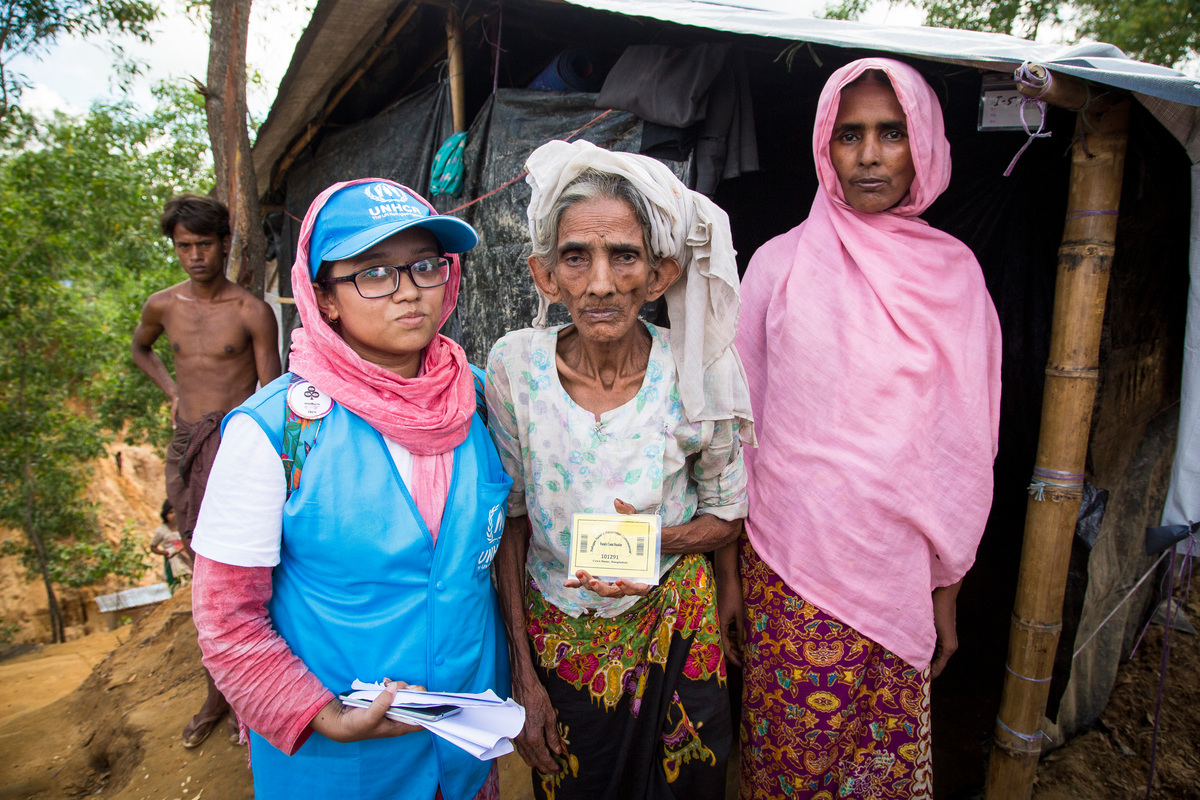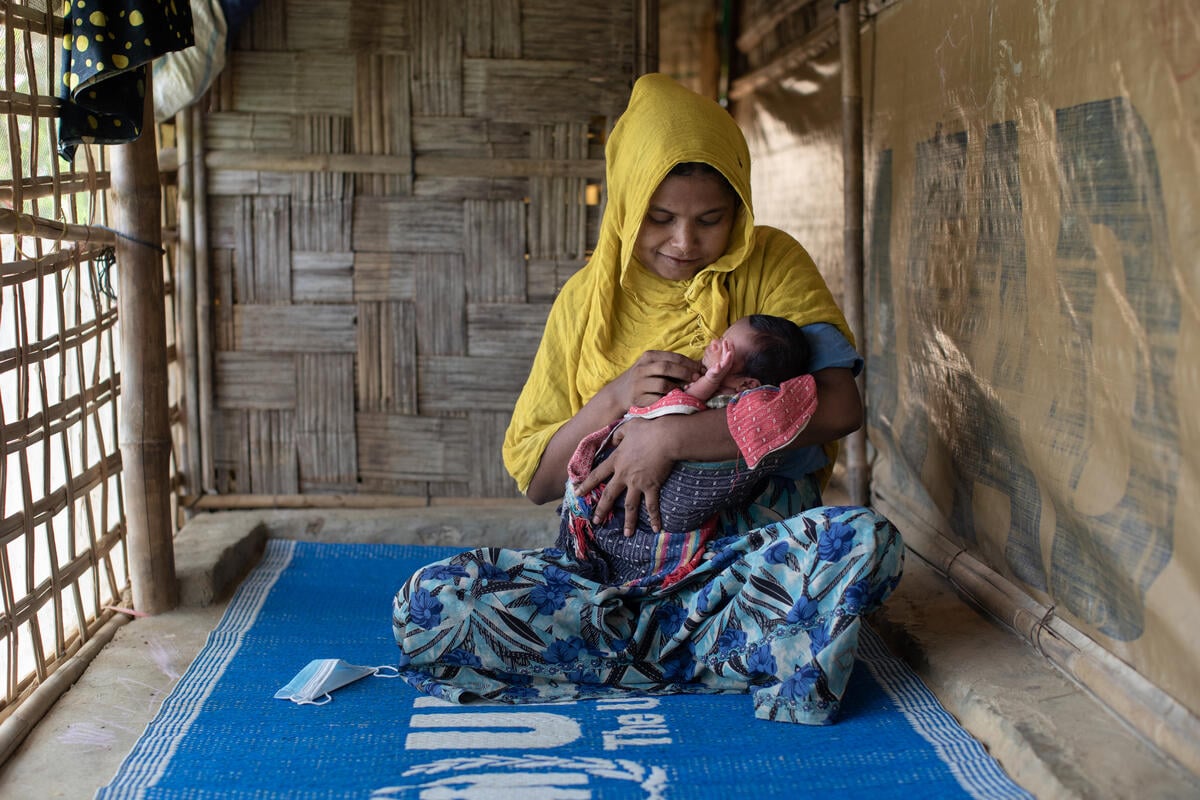In Bangladesh, focus turns to family counting as refugee help needs mount
In Bangladesh, focus turns to family counting as refugee help needs mount

In Bangladesh, UNHCR has been working with the government in the first stage of a new ‘family counting’ exercise to collect data on the estimated 536,000 newly-arrived refugees and their needs.
The exercise will enable the Government, UNHCR, and other agencies to have a better understanding of the size and breakdown of the population and where they are located. It is key for getting the right aid to the right people. It will also help flag refugees with special protection needs, such as single mothers with small infants, people with disabilities, or children and elderly refugees who are on their own.
Led by Bangladesh’s Refugee Relief and Repatriation Commission (RRRC), the exercise has so far counted 17,855 families – more than 70,000 individuals. At this initial stage, it is being carried out in the Balukhali Extension and Kutupalong Extension camps and is expected to cover an estimated 525,000 people over the coming weeks.
The data collected will be shared with other service providers. UNHCR is ready to increase its support to RRRC as the exercise expands to other locations. Our support thus far has been in recruiting and training 100 enumerators, designing and facilitating the process of family counting as well as provision of equipment and resources. We are working closely with refugee community leaders on providing information to the new arrivals. We are also providing the equipment and database for capturing the data.
Enumerators meet families in their shelters and enter their family data into a mobile phone application. Families are asked a set of questions, including composition, sex, and ages, date of arrival, and area of origin in Myanmar. This data, including a photo of the family, is uploaded into a mobile application, together with a basic indicator of the family’s location based on zones, and GPS coordinates of the family’s residence. This data can be collected via a smartphone even without Internet connectivity.
Families are provided a card bearing the RRRC logo and containing a unique family identification number, which will be important for organizing and ensuring access to assistance and protection.
On new arrivals from Bangladesh, some 173 families (several hundred people) are reported to have arrived overnight last night and so far today by boat, according to an NGO partner. We hear persistent reports of many people waiting to cross, and people being on the move inside Myanmar.
In parallel with ramping up delivery of assistance in Cox’s Bazar, we continue to bring additional aid into Bangladesh. Over the past four weeks UNHCR organised seven airlifts, flying in some 700 metric tonnes of life-saving aid. More UNHCR aid flights for Bangladesh are being scheduled in coming days.
Meanwhile, preparations are underway in Geneva for a donor pledging conference in support of the Joint Response Plan on 23 October. The conference, organised by IOM, OCHA and UNHCR and co-sponsored by the European Union and Kuwait, is looking to raise USD434 million for immediate needs of Rohingya refugees in Bangladesh and the local communities hosting them.
For more information on this topic, please contact:
- In Cox's Bazaar, Vivian Tan, tanv@unhcr.org, +66 818 270 280
- In Cox's Bazaar, Yante Ismail, ismaily@unhcr.org, +880 17 5423 8067
- In Geneva, Andrej Mahecic, mahecic@unhcr.org, +41 79 642 97 09
- In Geneva, Duniya Aslam Khan, khand@unhcr.org, +41 79 453 25 08









